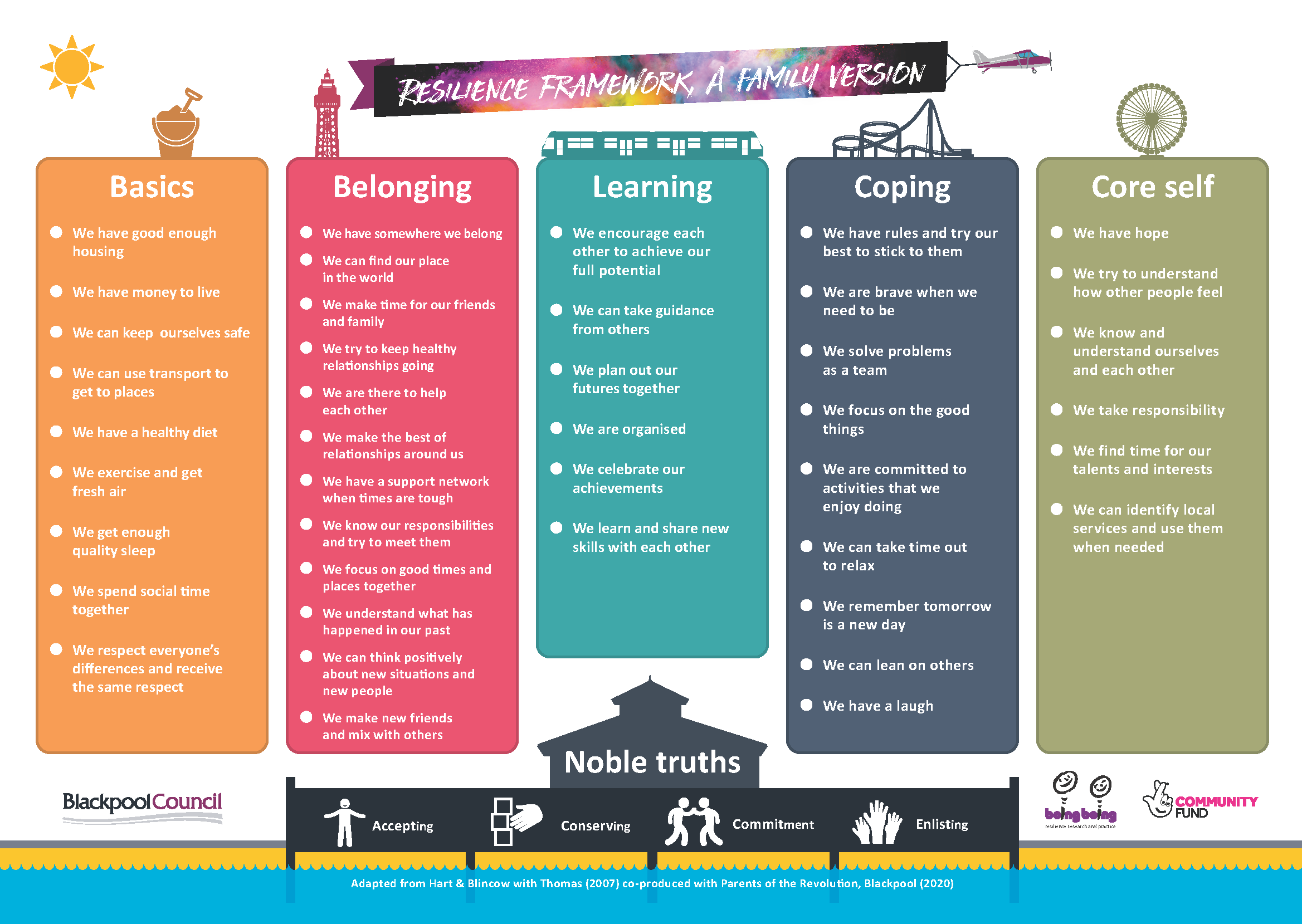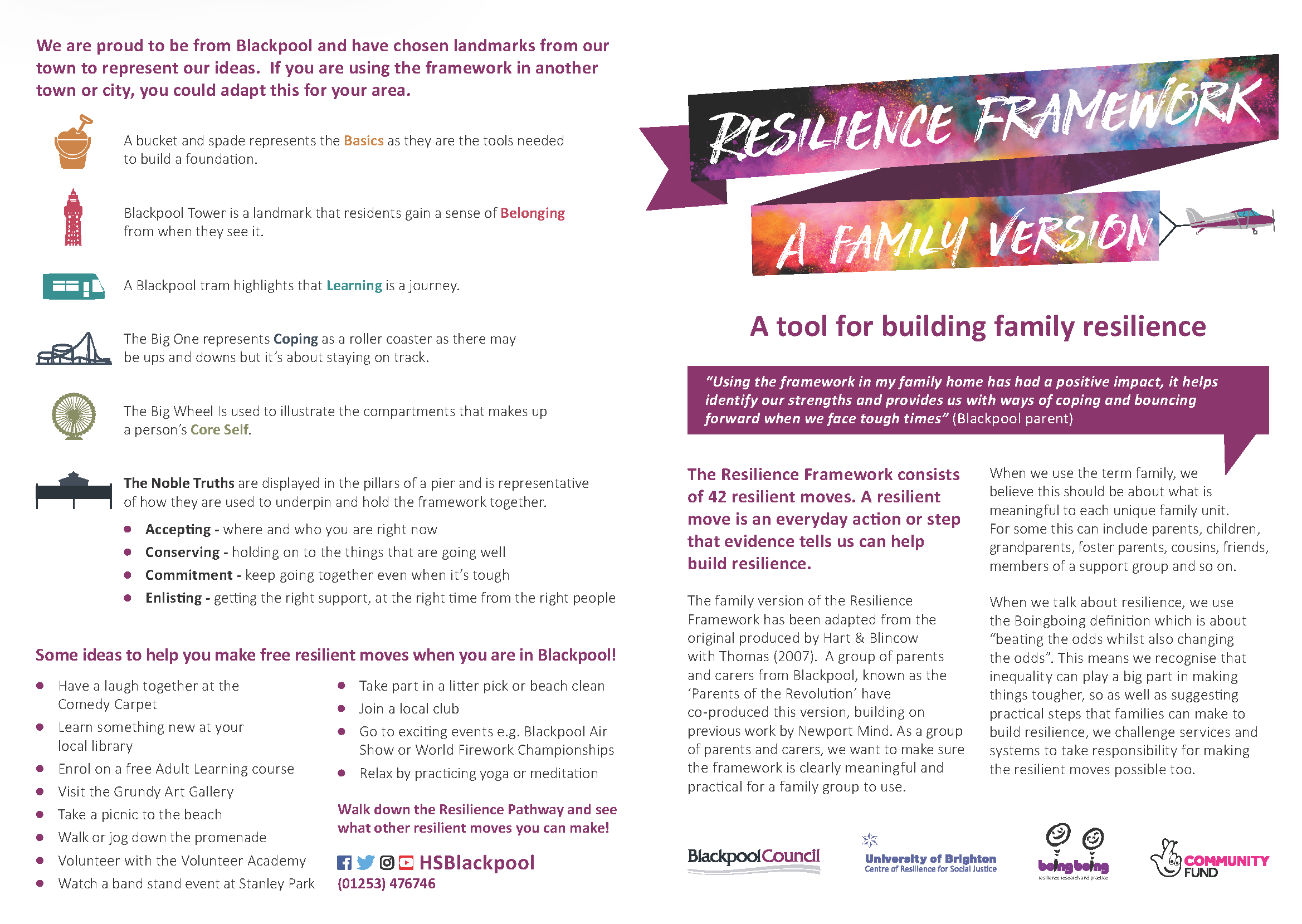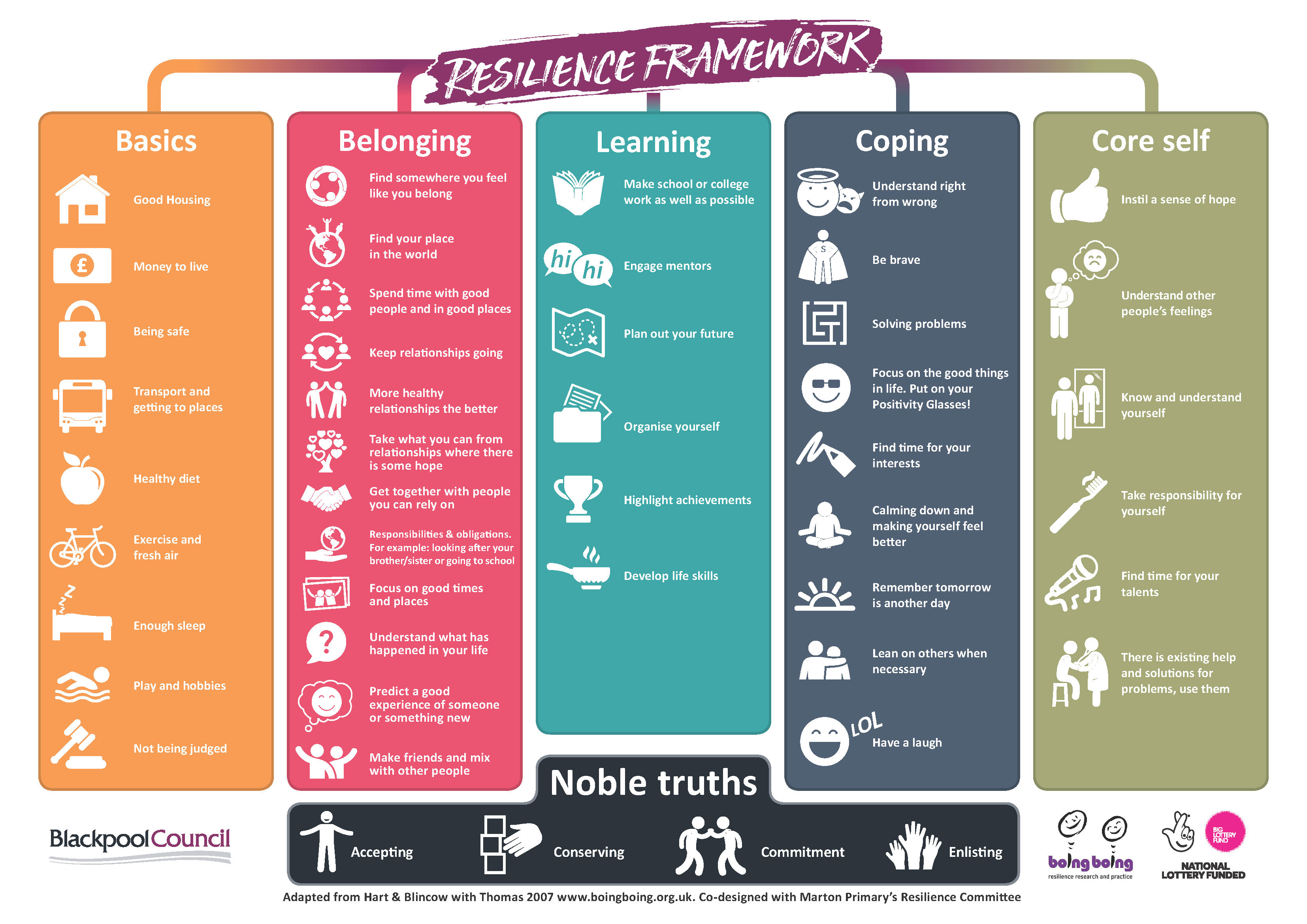What is the Resilience Framework?
The Resilience Framework is freely accessible for anyone to use at www.boingboing.org.uk and brings together knowledge from resilience research, with the experience of practitioners and those living with adversity, into five key sections, each containing a number of interventions. The different sections within the Resilience Framework are underpinned by a strong research evidence base and the interventions have been developed through research and engagement with communities to translate the research into resilient 'moves' for young people, professionals, parents and carers. Two versions of the Resilience Framework are shown here. One created by young people for young people and the Family Version - designed to be used by whole family groups or adults.
How can I use it?
You can start anywhere on the framework, there’s no right or wrong place to begin and you don’t have to make all 42 Resilient Moves! Starting anywhere will be good enough and wherever you start is likely to have a knock-on effect and build other areas of resilience. You might already be making some or spot one you could add in. Some Resilient Moves will have to be adapted to meet the lockdown guidelines, for example ‘spending time with good people’ might have to happen digitally and ‘transport and getting to places’ should be for safe essential travel.
The five sections of the Resilience Framework
Basics: ensuring the necessities needed for life are in place: like food, sleep, exercise, money, housing, a safe space and the right to be free from prejudice and discrimination.
Belonging: encouraging good relationships: concentrating on positive times and places, remaining hopeful about new connections and having people in your life you can count on.
Learning: having opportunities inside and outside of school or work to develop interests, talents and life skills, including mapping out or having a view of the future.
Coping: embedding the skills needed to manage the knocks of everyday living, like problem-solving, staying calm and leaning on others if needed.
Core self: developing those things that help children, young people and families to develop a strong sense of themselves, including ways to build and nurture their confidence, self-esteem and character.
The Noble Truths
The Resilience Framework is underpinned by a set of key principles called ‘The Noble Truths’. They describe underlying values for resilience-building work and can be helpful when the complexity of practising in multiple disadvantages threatens to overwhelm us.
Accepting: starting with exactly where a child, young person or family is at, even if it means being at a very sore point. Returning to ‘unconditional positive regard’, which means trying not to judge people and appreciating them or their basic humanity come what may.
Conserving: holding on to anything good that has happened up until now and building on it. When there is so much difficulty around, preserving the little positive that there is becomes even more precious.
Commitment: staying in there and being explicit about what your commitment can be. Being realistic about what’s doable, and not giving up or expecting things to change overnight.
Enlisting: seeking others to help and moving on from those who might have let us down in the past, noticing that we may not be enough, or we may be too much.
Who created the Resilience Framework?
The Resilience Framework was originally put together by Professor Angie Hart and colleagues and continues to be developed by a thriving community of researchers, practitioners, parents, young people and many others in the UK and around the world. For more background on the theory and development of the framework see www.boingboing.org.uk. You can also find versions of the framework in many other languages, representations co-produced by young people, as well as an Interactive Resilience Framework and a Resilience Framework for Adults. There is also a blank Resilience Framework so that you can write your own items if you wish.
 The ‘Parents of the Revolution’, have co-produced this family version of the Resilience Framework as part of Blackpool’s town-wide Resilience Revolution, building on previous work by Newport Mind.
The ‘Parents of the Revolution’, have co-produced this family version of the Resilience Framework as part of Blackpool’s town-wide Resilience Revolution, building on previous work by Newport Mind. 


